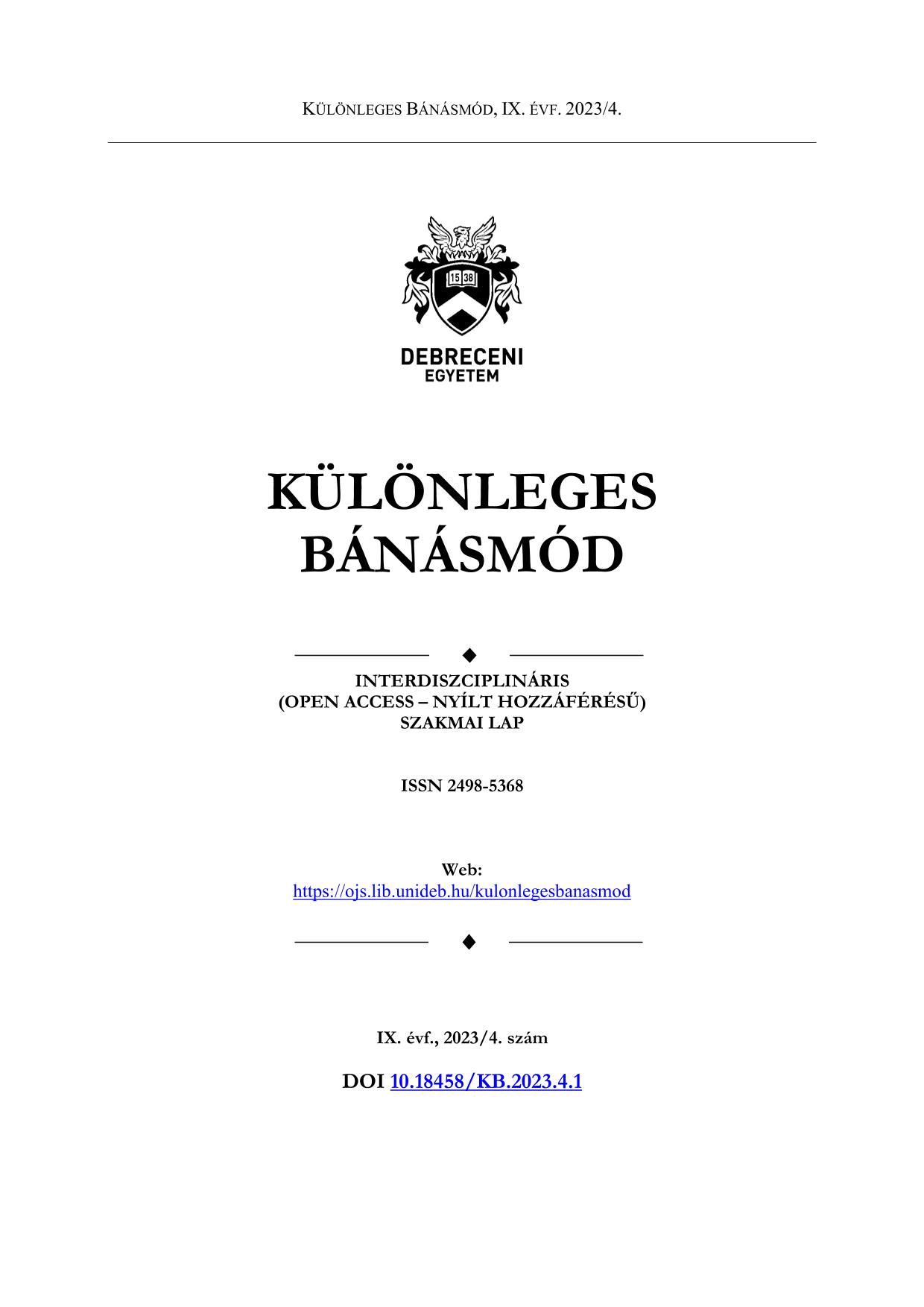ASSESSMENT OF THE ADAPTIVE FUNCTIONING LEVEL OF STUDENTS WITH MODERATE INTELLECTUAL DISABILITY USING THE VINELAND SOCIAL MATURITY SCALE
Author
View
Keywords
License
Copyright (c) 2024 Nagy Erika

This work is licensed under a Creative Commons Attribution-NonCommercial-NoDerivatives 4.0 International License.
How To Cite
Abstract
Background and aim: Individuals with intellectual disability are expected to have significant limitations in intellectual functioning and adaptive behaviour, which affect the individual's ability to cope with social and practical situations. The present study is concerned with the assessment of the adaptive functioning of young people with moderate intellectual disability, which is part of a more complex study (this study will investigate the impact of adaptive functioning levels of students with moderate intellectual disability on parents' subjective perceptions). Method: the study presents the results of the assessment of adaptive functioning of students with moderate intellectual disability (n=9) using the Vineland Social Competence Scale. Results: the social age of the students in the study is significantly below their age, especially in the areas of communication, socialisation, and self-management. The study confirms previous findings (Hatos, 2008; Radványi, 2001) and highlights the need for teachers of students with moderate intellectual disabilities to develop these skills.


 https://doi.org/10.18458/KB.2023.4.25
https://doi.org/10.18458/KB.2023.4.25